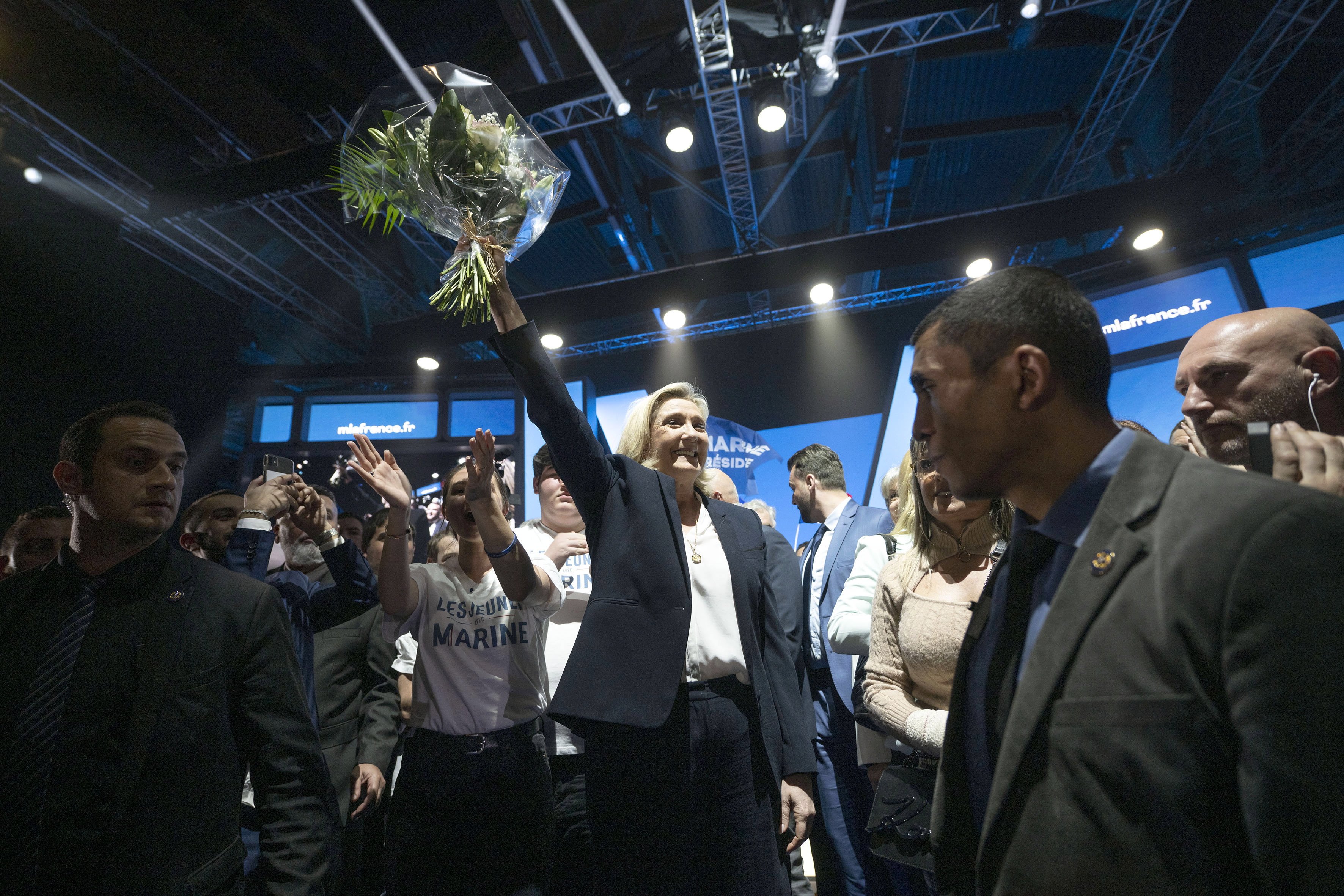The front pages of France's left-wing press have already been warning about it for days. "The extreme right, more dangerous than ever," headlined Libération last Thursday. And the director of Le Monde warned in his editorial on Friday: "The role of the newspaper is not to support a candidate. But given the risk of abstention, we call on everyone to vote and say that Marine Le Pen's and Eric Zemmour's candidacies are incompatible with all of our principles." And the prophecy turned out to be correct: the far right was a danger and in the end accounted for one third of the votes cast in Sunday's first round of the presidential vote. How was that possible?
None of this, and nor the previous election five years ago, can be understood without underlining the importance of Marine Le Pen's strategy when she took over the then-National Front, now the Rassemblement National - the National Rally. She set in motion what they called a de-demonization: starting from the idea that the party had been "demonized" by the system and the media, and that the façade needed to be renewed; purging vulgar elements from the discourse (anti-Semitism and Holocaust denial, for example) and adding items that would allow it to be renewed. Immigration was still the workhorse of policy, but new enemies were emerging: globalization, multinationals, Brussels bureaucrats…
But there has been a qualitative leap in this campaign, according to Nonna Mayer, professor at SciencesPo Paris, and a specialist in the far right. "They have run a very good campaign, being moderate and avoiding any jolts," said the researcher, who emphasized how "they have played their cards very well" on the purchasing power question. Rising prices, an issue that has been present ever since the yellow vests began their protests in 2018, is the main concern of the French population, according to all the polls. And even more so for the far-right's potential voters, who are in the lower income categories. The party has managed to dodge all its hot potatoes - such as its past support of Vladimir Putin, with whom it maintained not only political but also economic relations. "They acted with speed and agility to condemn the Russian aggression in Ukraine," said Mayer.
Mayer: "Zemmour has helped Le Pen. He has completely normalized her, making her look less radical."
The most symptomatic fact has been the emergence of the controversial Eric Zemmour, even more radical than Le Pen. At first this led to nervousness in the ranks of the National Rally, due to the prospect of the far right being divided. They tried to get him to withdraw his bid for the presidency. But against all odds, it has benefited her. "Zemmour has helped Le Pen, he acted as the counterpoint. He has completely normalized her, making her appear less radical," says Nonna Mayer. "She has acquired a status of President of the Republic that she did not have," she added. In line with this, she has been presented in billboards as a "woman of state". As a result, the far-right voter base has expanded: in the first round of 2017, the sum of the candidatures of Marine Le Pen and Nicolas Dupont-Aignan took 25% of the vote. This Sunday, they took 34% of the ballots. One in every three French voters.
And yet, just because she is perceived as less radical by public opinion does not mean that she has ceased to be so. The National Rally manifesto, its proposals, have not changed. The party continues to propose a reform of the French Constitution to introduce the "national preference", according to which access to jobs, accommodation or social assistance would be restricted to people with French nationality. It also wants to restrict the right to asylum (so that applications would have to be made "outside national territory") and suppress family reunification of migrants. These proposals, according to experts, would not be constitutional nor in line with the treaties of the European Union.
Le Pen has moderated her image, but the party manifesto remains the same
The far right has established itself as the protest vote in France, broadening its base among the most disadvantaged voters, as has been seen in recent years, election after election. And now it’s a real threat. With a view to the second round on April 24th, the polls are getting tighter. Some put Marine Le Pen at 49%, regardless of the margin of error. "We are facing a choice of civilization," was the warning from the National Rally's presidential candidate on Sunday.

